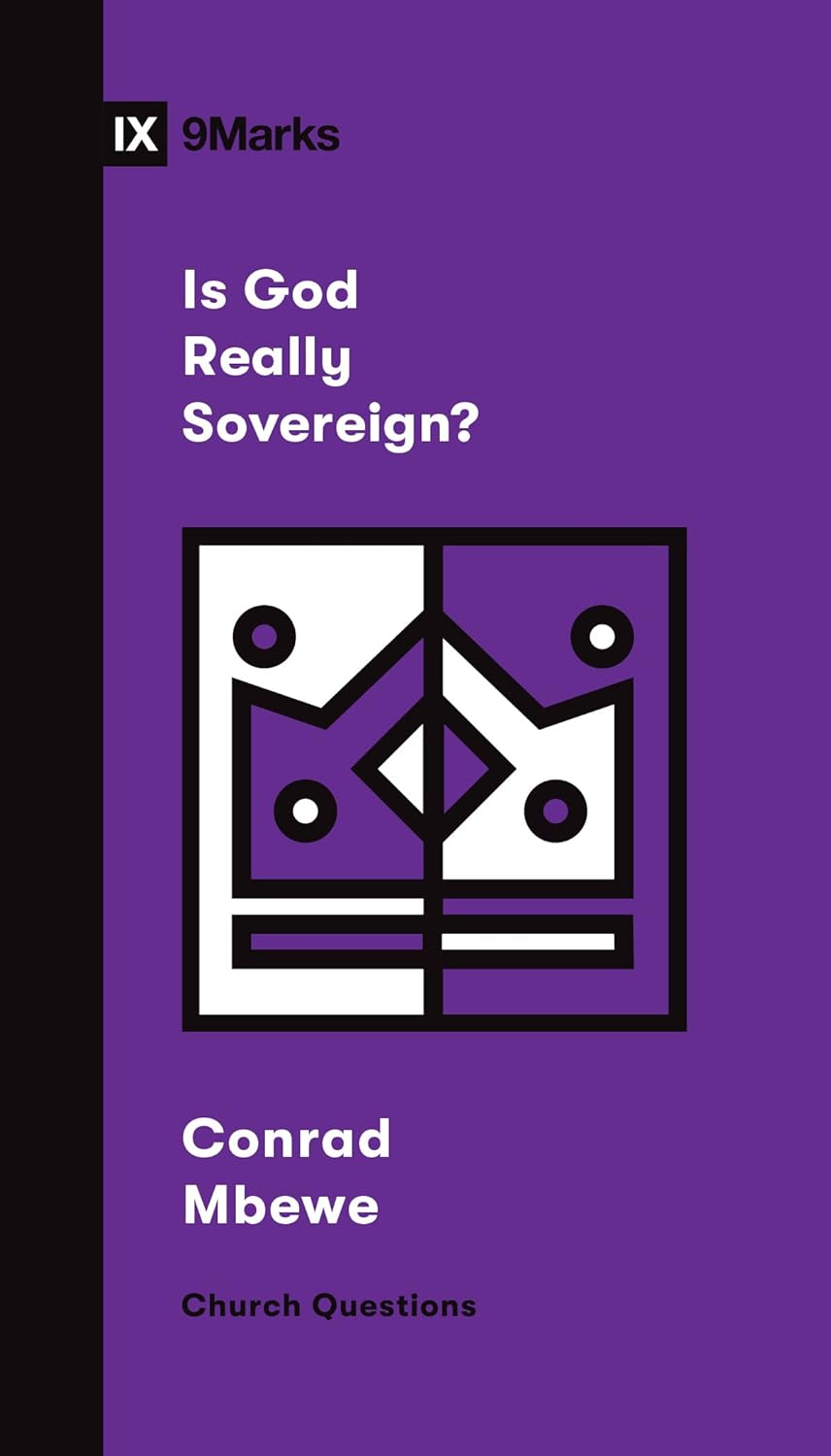Is God Really Sovereign, by Conrad Mbewe, is a recent addition to the church questions series, published in conjunction with 9 Marks and Crossway. The series seeks to provide answers to various biblical, theological and practical questions that Christians ask. And in this book Mbewe addresses an all important question: what does it mean that God is sovereign? Furthermore, is he really in control; to what degree and in how much detail?
Mbewe highlights the triune God’s sovereign plan and work of salvation in redeeming sinners.
Mbewe sets out to answer the question of God’s sovereignty in three parts. In the first section he addresses what the Bible teaches about the sovereignty of God. In the second, he briefly addresses God’s sovereignty and the problem of evil. Finally, in the third section, Mbewe considers the implications of God’s sovereignty for the believer.
Like this book, we must begin where every Christian should: what does the Bible teach about the sovereignty of God?
A Central Biblical Theme: God Is Sovereign
Mbewe demonstrates a few of the ways that the Bible talks about God’s sovereignty. Here is a sampling of those ways, or categories.
Firstly, Mbewe works towards a definition. He says that “we’re talking about his absolute and unlimited power—power that no human ruler can ever approximate. The sphere over which God exercises this unmitigated control and authority is the whole of creation. He is sovereign and in control over the entire universe” (p14). He also points the reader to the more comprehensive definition from The Second London Confession of Faith.
Is God Really Sovereign?
Conrad Mbewe
God’s sovereignty is difficult for most people to wrap their minds around even when they’re not going through difficult times; the topic raises many questions about salvation, evangelism, sin, and suffering. But when difficult circumstances arise, many believers ask, “Is God really in control?”
God’s eternal plan is only possible when underwritten by absolute, unlimited power.
Building on that definition, Mbewe considers the biblical language of God’s eternal plan. Such a plan is only possible when underwritten by absolute, unlimited power. Otherwise it could be frustrated, even foiled. So when we read about God’s eternal plan for the creation, we cannot do so apart from God’s sovereignty. Mbewe writes that “God planned out what he was going to make, how he was going to sustain that creation and the story that would unfold on this earthly stage” (p18).
This plan, coupled with unparalleled power, was on display when God spoke everything into existence. He didn’t just create and distance himself from creation. He was in control over every detail of history; and he works out all things according to his sovereign plan and purpose. Mbewe further highlights the triune God’s sovereign plan and work of salvation in redeeming sinners to and for himself. As the sovereign creator, God possesses an absolute right to judge his creation. Those who live in submission to God’s authority are rewarded with eternal life, while those who rebel incur the sovereign wrath of God.
What About Evil?
God is sovereign over evil, yet he isn’t the author of evil.
After explaining what the Bible says about God’s sovereignty, Mbewe discusses it further in connection with the problem of evil. He handles the question simply but also very pastorally. He argues that God is sovereign over evil, yet he isn’t the author of evil. Satan is not some rogue foe who actually has the potential to usurp God’s rule, but he operates under the sovereign power and reign of God. God allows evil, and he will judge evil.
The Significance of Sovereignty in Christian Faith
The third section of Mbewe’s book deals with some practical implications of this doctrine. For biblical doctrine must inform faith and Christian living.
The right response to a sovereign God is worship and obedience.
So the sovereignty of God must cultivate humility. It should cause all of us to bow before the Almighty. Furthermore, it must generate hearts of gratitude, particularly for God’s plan and powerful work of salvation. Lastly, the right response to a sovereign God is worship and obedience.
The book is a helpful and necessary handling of an often controversial subject. Questions around God’s sovereignty have always generated conversation. And the reader will be helped by this introductory work. Its particular strength is found in Mbewe’s practical and pastoral approach, as he seeks to apply the doctrine to everyday life. This is an important model for how to do theology.















